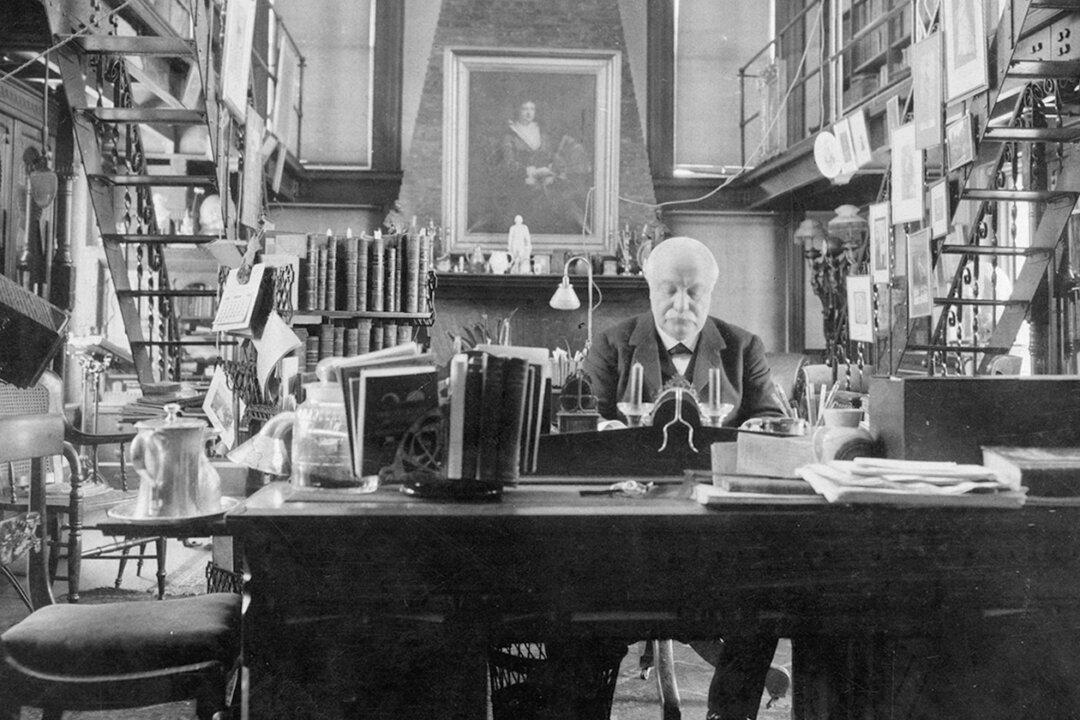Ninety years before Horace Howard Furness (1833–1912) was born, the great Philadelphian Benjamin Franklin founded the American Philosophical Society (APS). Furness would go on to have more in common with Franklin than simply living in the same city.
Furness was the son of influential theologian and Unitarian minister William Furness and would enjoy a philosophically rich upbringing. He began pursuing the study of law and literature. His inspiration for the latter seems to have come at the age of 14 years old when he witnessed the reading of the works of William Shakespeare by the renowned British actress Fanny Kemble.






